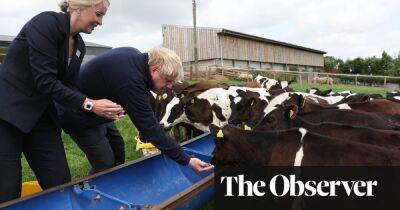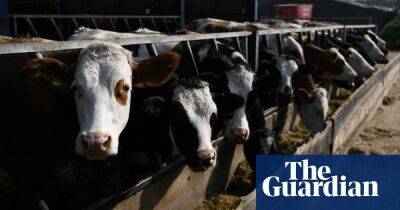Government’s food plan unlikely to beat obesity crisis, UK health expert warns
The focus on personal responsibility rather than official action in the government’s national food strategy is unlikely to tackle the UK’s obesity crisis, a leading authority on public health has said.
Sir Michael Marmot, who has led pioneering research into health disparities, said the approach was not supported by evidence, and that he was disappointed the strategy had dropped many of the recommendations of Henry Dimbleby, the government’s lead adviser on food.
While obesity was “terribly challenging”, Dimbleby’s ideas including an expansion of free school meals and new taxes on salt and sugar were welcome, said Marmot, who is professor of epidemiology at University College London.
“How to deal with that is complicated, but I think Henry Dimbleby made a good fist of it,” he said.
While other elements of Dimbleby’s proposals have made it into the final strategy, almost everything connected to health intervention was removed, to be addressed in a separate health disparities white paper due later this year, potentially before the summer recess.
In his report, Dimbleby argued the state has “the moral authority to intervene in people’s lives to help them eat better”. However, the food strategy refers to the “important role for individual responsibility and choice”, a popular mantra among ministers.
In a newspaper interview [paywall] on Saturday the health secretary, Sajid Javid, said people would “decide rightly for themselves whether they’re going to smoke and drink, they’re going to want to eat fatty foods”.
There was a danger, Marmot said, of creating an artificial ideological divide: “We’re agreed the government has an important role in health. There is an important debate as to where it starts and stops, and people will put
Read more on theguardian.com




















